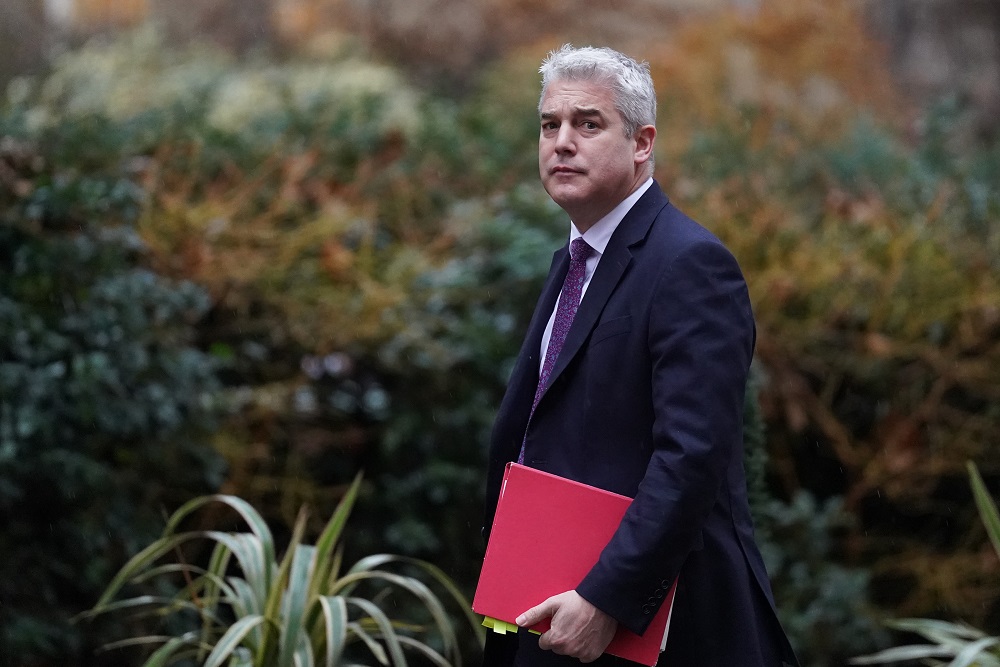Minister to meet health unions as leaders warn strikes could put patients at risk

Future NHS strikes could “intensify” the risk to patients, health leaders have warned as they urged ministers to reach an agreement with trade unions as soon as possible.
The warning from the NHS Confederation comes as ministers are set to sit down with various unions on Thursday – including doctors – in a bid to avert future strikes.
But talks with medics, particularly those from the British Medical Association (BMA), may start on a sour note after Steve Barclay cancelled a meeting on Wednesday in favour of conducting media interviews.
The Health Secretary is set to meet with BMA representatives along with the hospital doctors’ union HCSA and the British Dental Association on Thursday.
Meanwhile, civil service unions are set to meet Cabinet Office ministers.
It comes after the Public and Commercial Services (PCS) union announced that about 100,000 civil servants will walk out on February 1 in a dispute over pay.
The PCS union said that the dispute could be resolved if ministers “put some money on the table”.
Mark Serwotka, general secretary of the Public and Commercial Services union, said: “I am meeting with the Minister for the Cabinet Office, Jeremy Quin.
“If he puts some money on the table, there is a chance this dispute can be resolved.
“If he doesn’t, then he’ll see public services from benefits to driving tests, from passports to driving licences, from ports to airports affected by industrial action on February 1.”
And officials from the Rail Delivery Group will meet with the Rail, Maritime and Transport union and Transport Salaried Staffs Association in a fresh bid to break the deadlock.
Breakthrough
Transport Secretary Mark Harper raised hopes of a breakthrough within “days” as he confirmed a “renewed offer” was on the table ahead of the talks.
The unions have made it clear they need a new offer on pay, jobs and conditions before the dispute can end.
The meetings come after 14 health unions announced that they will not be submitting evidence to the NHS pay review body for the next wage round while the current industrial disputes remain unresolved.
The 14 unions, representing more than one million ambulance staff, nurses, porters, healthcare assistants, physiotherapists and other NHS workers in England, have called for direct pay talks with ministers.
Unions said they believe the lengthy pay review body process is not able to deliver a deal that resolves the current pay and staffing dispute, which has led to a series of strikes.
Matthew Taylor, chief executive of the NHS Confederation, said: “For NHS leaders there is a real fear that the risk to patients will only intensify with future strikes, including for nurses and physiotherapists planned in the coming weeks, and no sign of resolution on the horizon.
“In what is by far the toughest winter in the NHS for a decade, and set against the perfect storm of rising levels of winter illnesses including Covid and flu and huge staff vacancies, the Government must not turn a blind eye on the situation.
“It must reach an agreement with trade unions as soon as possible.”
In other strike updates:
– Workers on London’s Elizabeth line will go on strike on Thursday while London bus workers at Abellio will also stage industrial action.
– Rural Payments Agency (RPA) staff will continue their walkout.
– The PCS stoppage will coincide with the TUC’s “protect the right to strike” day, which was announced in reaction to the Government’s controversial legislation on minimum service levels during industrial action.
– The National Education Union (NEU) and teachers’ union NASUWT, as well as school leaders’ union the National Association of Head Teachers (NAHT), are balloting members on strike action in England and Wales with results due in the coming week.
– NHS physiotherapy staff across England will strike on January 26 and February 9, the Chartered Society of Physiotherapy (CSP) announced on Wednesday.
– NHS officials work on contingency plans for the planned walkout of nurses on January 18 and 19 and further ambulance service strikes on January 23.
– About 45,000 members of the British Medical Association were balloted on Monday over the prospect of strike action, with the result due at the end of February. The BMA has told the Government if there is a yes vote, junior doctors will begin their action with a 72-hour “full walkout” in March.
– Junior doctor members of HCSA are currently voting in a strike ballot which closes on January 20, which could result in walkouts in February.
Impact
Meanwhile, NHS leaders will be assessing the impact of Wednesday’s ambulance strikes where up to 25,000 ambulance workers with the GMB and Unison unions staged walk outs.
Dr Adrian Boyle, president of the Royal College of Emergency Medicine, said that strike action can lead to “pent-up demand” in the days after walkouts.
He told Times Radio on Wednesday: “In a way, what we’re more concerned about is not what happens on the day, but we know that it creates disruption in the following days.
“We talk about a rebound effect because there is a pent-up demand, all sorts of problems occur in the system later.”
Support our Nation today
For the price of a cup of coffee a month you can help us create an independent, not-for-profit, national news service for the people of Wales, by the people of Wales.







He’s the English Health Secretary.